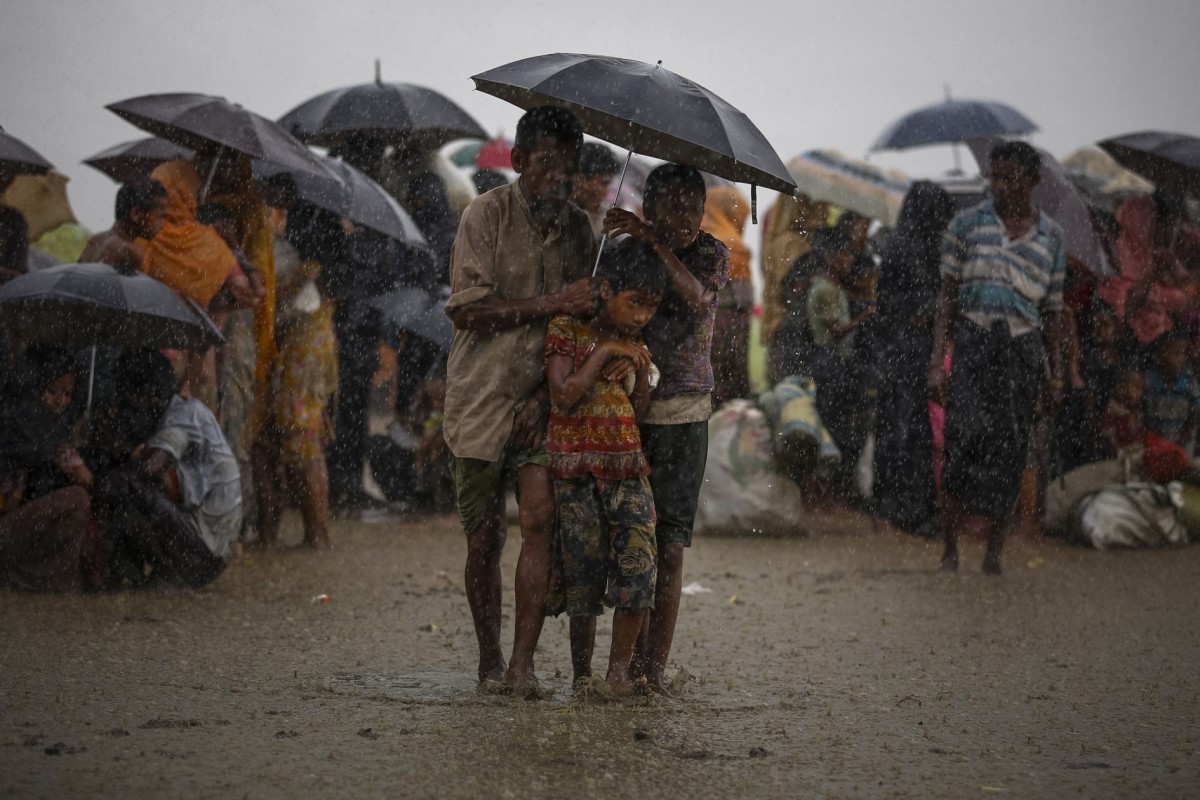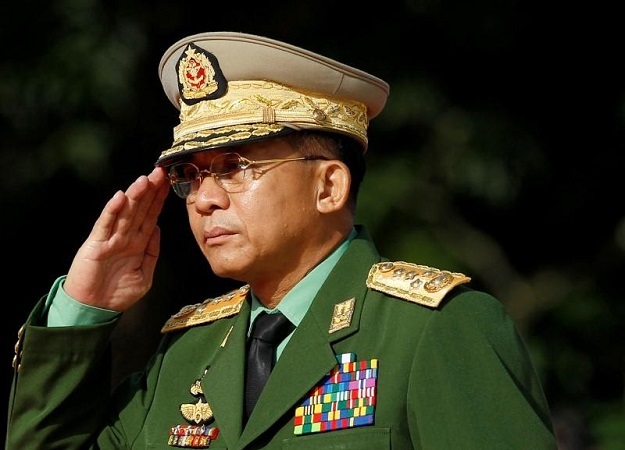
The civilian government led by Aung San Suu Kyi has allowed hate speech to thrive, destroyed documents and failed to protect minorities from crimes against humanity and war crimes by the army in Rakhine, Kachin and Shan states, they said in a report.
In doing so, it “contributed to the commission of atrocity crimes”, the report said.
A year ago, government troops led a brutal crackdown in Myanmar’s Rakhine state in response to attacks by the Arakan Rohingya Salvation Army (ARSA) on 30 Myanmar police posts and a military base.
US slaps sanctions on Myanmar military commanders over Rohingya abuses
Some 700,000 Rohingya fled the crackdown and most are now living in refugee camps in neighboring Bangladesh.
The UN report said the military action, which included the scorching of villages, was “grossly disproportionate to actual security threats”.
The United Nations defines genocide as acts meant to destroy a national, ethnic, racial or religious group in whole or in part. Such a designation is rare under international law, but has been used in countries including Bosnia and Sudan and in the Islamic State campaign against the Yazidi communities in Iraq and Syria.
“The crimes in Rakhine State, and the manner in which they were perpetrated, are similar in nature, gravity and scope to those that have allowed genocidal intent to be established in other contexts,” said the UN Independent International Fact-Finding Mission on Myanmar.
Priyanka Chopra urges world to care for Rohingya refugees
In the final 20-page report, it said: “There is sufficient information to warrant the investigation and prosecution of senior officials in the Tatmadaw (army) chain of command, so that a competent court can determine their liability for genocide in relation to the situation in Rakhine state.”
The UN panel, led by former Indonesian attorney-general Marzuki Darusman, named the Myanmar army’s commander-in-chief, Senior General Min Aung Hlaing, and five other generals who should face justice. They included Brigadier-General Aung Aung, commander of the 33rd Light Infantry Division, which oversaw operations in the coastal village of Inn Din where 10 Rohingya captive boys and men were killed.
 Myanmar Army Chief Min Aung Hlaing. PHOTO: REUTERS
Myanmar Army Chief Min Aung Hlaing. PHOTO: REUTERSThe massacre was uncovered by two Reuters journalists - Wa Lone, 32, and Kyaw Soe Oo, 28 - who were arrested as a result last December and are being tried on charges of violating the country’s Official Secrets Act. The court had been due to deliver its verdict on Monday, but at a brief hearing earlier the proceedings were postponed until Sept. 3.
Canada sanctions top Myanmar military over Rohingya abuses
CALL FOR INDIVIDUAL SANCTIONS
The UN Security Council should ensure all perpetrators are held to account, preferably by referring Myanmar to the International Criminal Court (ICC) or by creating an ad hoc tribunal, the investigators said.
The Security Council should “adopt targeted individual sanctions, including travel bans and asset freezes, against those who appear most responsible for serious crimes under international law” and impose an arms embargo on Myanmar, they said.
The panel, set up last year, interviewed 875 victims and witnesses in Bangladesh and other countries, and analyzed documents, videos, photographs and satellite images.
Decades of state-sponsored stigmatisation against Rohingya had resulted in “institutionalised oppression from birth to death”, the report said.
BJP leader accepts burning Rohingya refugee camp in New Delhi
The Rohingya, who regard themselves as native to Rakhine state, are widely considered as interlopers by Myanmar’s Buddhist majority and are denied citizenship.
“The Tatmadaw acts with complete impunity and has never been held accountable. Its standard response is to deny, dismiss and obstruct,” the UN report said.
International courts have a mixed record on prosecutions for genocide.
In 2008, a UN court sentenced former army colonel Theoneste Bagosora, accused of masterminding the slaughter of 800,000 people in Rwanda in 1994, to life in prison on charges of genocide and crimes against humanity. His sentence was later cut to 35 years on appeal.
In 2016, former Bosnian Serb leader Radovan Karadzic was convicted by UN judges of genocide for the 1995 Srebrenica massacre. He is appealing against the conviction.
The ICC issued arrest warrants for Sudan President Omar al-Bashir in 2009 and 2010 over his alleged role in war crimes including genocide in Sudan’s breakaway Darfur province in 2003. He remains in office.
1731570357-0/elon-musk-(1)1731570357-0-405x300.webp)
-(1)1717678110-0/Kendrick-(1)-(1)1717678110-0-165x106.webp)





1732445375-0/Untitled-design-(9)1732445375-0-270x192.webp)


1732428810-0/Copy-of-Untitled-(3)1732428810-0-270x192.webp)






COMMENTS (1)
Comments are moderated and generally will be posted if they are on-topic and not abusive.
For more information, please see our Comments FAQ